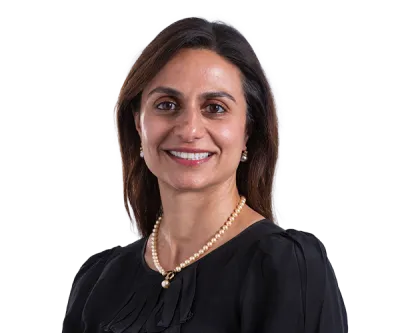
Economic substance requirements in the Cayman Islands
The Cayman Islands, along with many other jurisdictions, has been required by the OECD to introduce economic substance requirements. This guide explains what these requirements mean for the Cayman Islands and how to determine if a Cayman Islands entity is subject to the requirements imposed by the Substance Law.
The guide looks at the following aspects of the economic substance requirements in the Cayman Islands:
- Guidance notes
- Corporate entities and relevant entities
- Relevant activities
- The economic substance test
- Reporting
- Commencement
- Cayman Islands Economic Substance Tool
Introduction
Economic substance requirements have been introduced in the Cayman Islands (along with other no or nominal tax jurisdictions), commencing in 2019, for certain geographically mobile business activities (relevant activities), as part of the ongoing OECD/G20 project to combat Base Erosion and Profit Shifting. Introduction of such legislation by 2019 was required to avoid blacklisting on the EU’s list of non-cooperative jurisdictions for tax purposes. The aim of the initiative is to stop businesses artificially shifting profits generated in one jurisdiction to another jurisdiction with lower or no taxation.
In the Cayman Islands, the economic substance requirements are set out in The International Tax Co-operation (Economic Substance) Law (as revised) (ES Law).
The ES Law is supplemented by guidance notes (Guidance Notes) issued by the Tax Information Authority of the Cayman Islands (TIA). The current version 3.0, issued on 13 July 2020, provides relevant entities with guidance on the practical steps they must take to comply with the economic substance test set out in the ES Law.
A flowchart to assist with understanding the obligations of an entity under the ES Law is set out in Schedule 1 (Application of the Economic Substance Law) and is based on the ES Law, Guidance Notes and the online portal that has been created for filing ES Notices (defined below).
Who does the ES Law apply to?
The ES Law only applies to incorporated entities (corporate entities), which include:
- Cayman Islands companies (other than domestic companies) incorporated under:
- the Companies Law (as revised) (Companies Law); or
- the Limited Liability Companies Law (as revised);
- Cayman Islands limited liability partnerships registered under the Limited Liability Partnership Law, 2017; and
- Non-Cayman Islands companies registered as foreign companies under the Companies Law.
All corporate entities are required to submit an annual notification (to the Registrar of Companies along with their annual return) regarding their status under the ES Law (ES Notice), but only corporate entities that are "relevant entities" will have reporting obligations.
The following corporate entities are not relevant entities:
- unincorporated entities;
- investment funds (including vehicles through which they invest);
- entities tax resident outside the Cayman Islands; and
- domestic companies.
Who is excluded from the ES Law?
Unincorporated entities
Entities that are not incorporated, and therefore not listed in B above, are not corporate entities or relevant entities. For the avoidance of doubt, these include limited partnerships and trusts.
Investment funds
Investment fund is defined as an entity whose principal business is the issuing of investment interests to raise funds or pool investor funds with the aim of enabling a holder of such an investment interest to benefit from the profits or gains from the entity’s acquisition, holding, management or disposal of investments and includes an entity through which the investment fund directly or indirectly invests or operates (but not an entity that is itself the ultimate investment held), excluding certain types of licensed entity (banks, trust companies, insurance companies etc.). Investment interests is defined as a share, trust unit, partnership interest or other right that carries an entitlement to participate in the profits or gains of the entity.
As noted in B above, investment funds are not relevant entities. The definition of investment fund encompasses pooled investment vehicles that may not typically be thought of as investment funds, such as securitization vehicles.
A corporate entity that is an investment fund must submit an ES Notice annually, claiming the exemption.
Entities tax resident outside the Cayman Islands
A corporate entity will not be a relevant entity in respect of a relevant activity if:
- it is subject to corporate income tax in another jurisdiction on all the income from the relevant activity;
- it is a “disregarded entity” for U.S. income tax purposes and has a U.S. corporation as its parent; or
- the relevant activity is carried on by a branch of the entity that is subject to corporate income tax in another jurisdiction on all its branch income.
The corporate entity will be required to file an annual verification form (available on TIA’s website) and must produce evidence to TIA substantiating the exemption claimed, such as a Tax Identification Number, tax residence certificate or signed statement that a disregarded entity’s income has been included on its U.S. parent’s tax return, as applicable.
Domestic companies
A domestic company includes any company that is not part of an MNE Group and is:
- only carrying on business in the Cayman Islands in compliance with the local business licensing requirements set out in section 4(1) of the Local Companies (Control) Law (as revised) (LCCL) and section 3(a) of the Trade and Business Licensing Law (as revised) (TBL); or
- licensed as an association not for profit, pursuant to section 80 of the Companies Law.
The term carrying on business in the Cayman Islands has a number of exclusions for regulated activities, entities that have a principal office in the Cayman Islands but carry on all their business outside the Cayman Islands (external business), exempted or registered foreign entities carrying on business with other exempted or registered foreign entities in furtherance only of their external business, and concluding contracts etc. in the Cayman Islands in connection with external business. It follows that some businesses operating from premises in the Cayman Islands will not qualify as domestic companies; although they probably qualify if they hold a licence under the LCCL and/or TBL.
MNE Group means any Group that includes two or more enterprises for which the tax residence is in different jurisdictions or includes an enterprise that is resident for tax purposes in one jurisdiction and is subject to tax with respect to the business carried out through a permanent establishment in another jurisdiction; and Group means a collection of enterprises related through ownership or control such that it is either required to prepare Consolidated Financial Statements for financial reporting purposes under applicable accounting principles or would be so required if equity interests in any of the enterprises were traded on a public exchange.
Further Information
To read the full guide please use the download link on the right hand side of this page (or at the bottom if viewing on a mobile device).
Our tool is available here - Cayman Islands Economic Substance Tool to help you determine if a Cayman Islands entity is subject to the requirements imposed by the Substance Law. For more information please get in touch with your usual attorney contact at Carey Olsen or one of the lawyers listed on this page.









